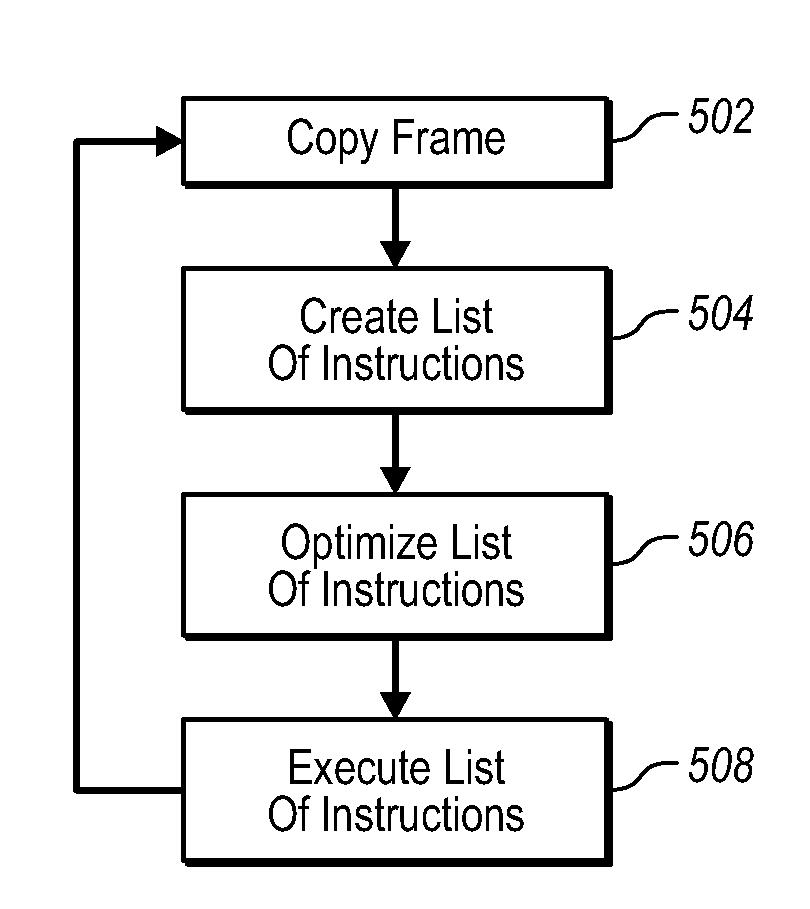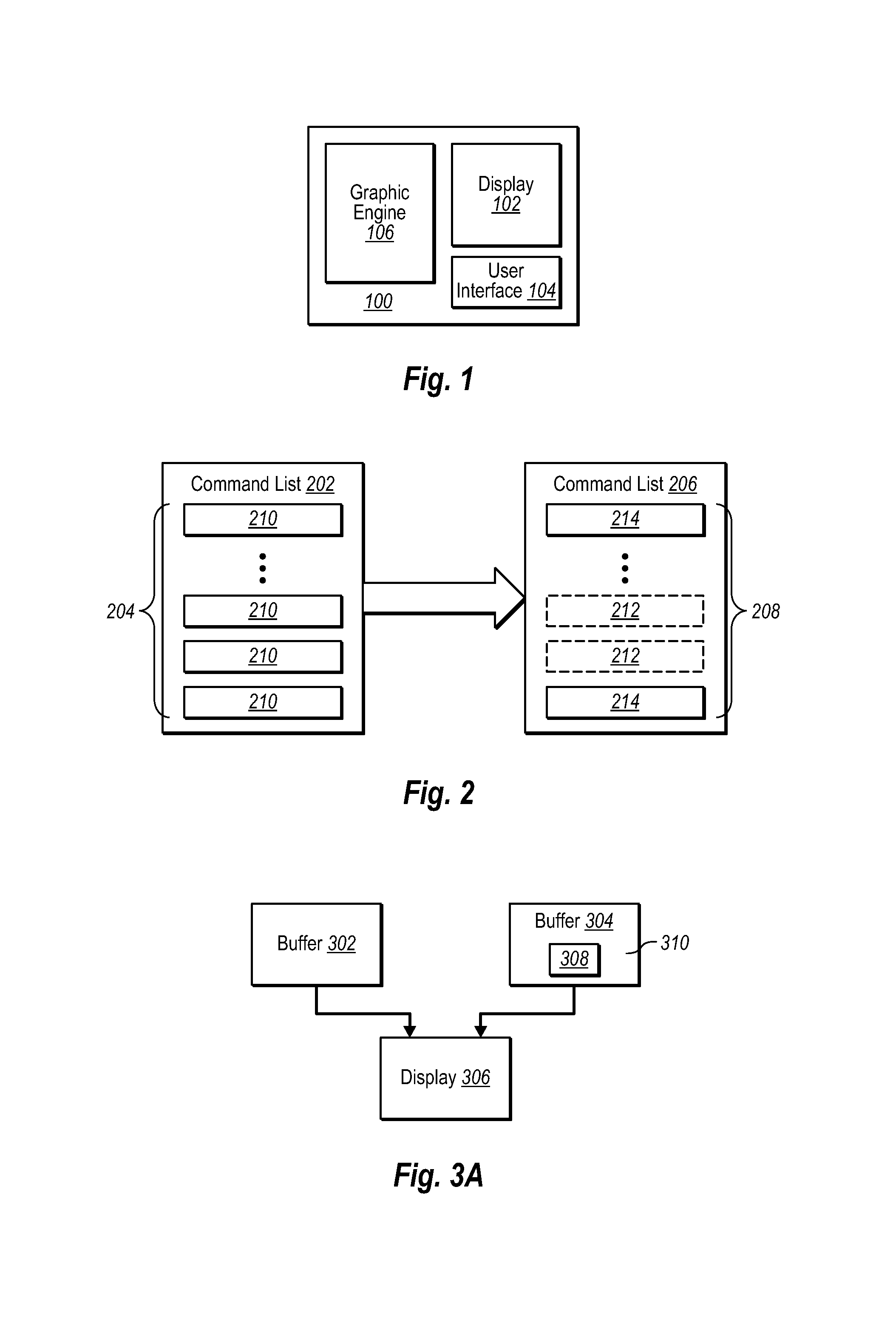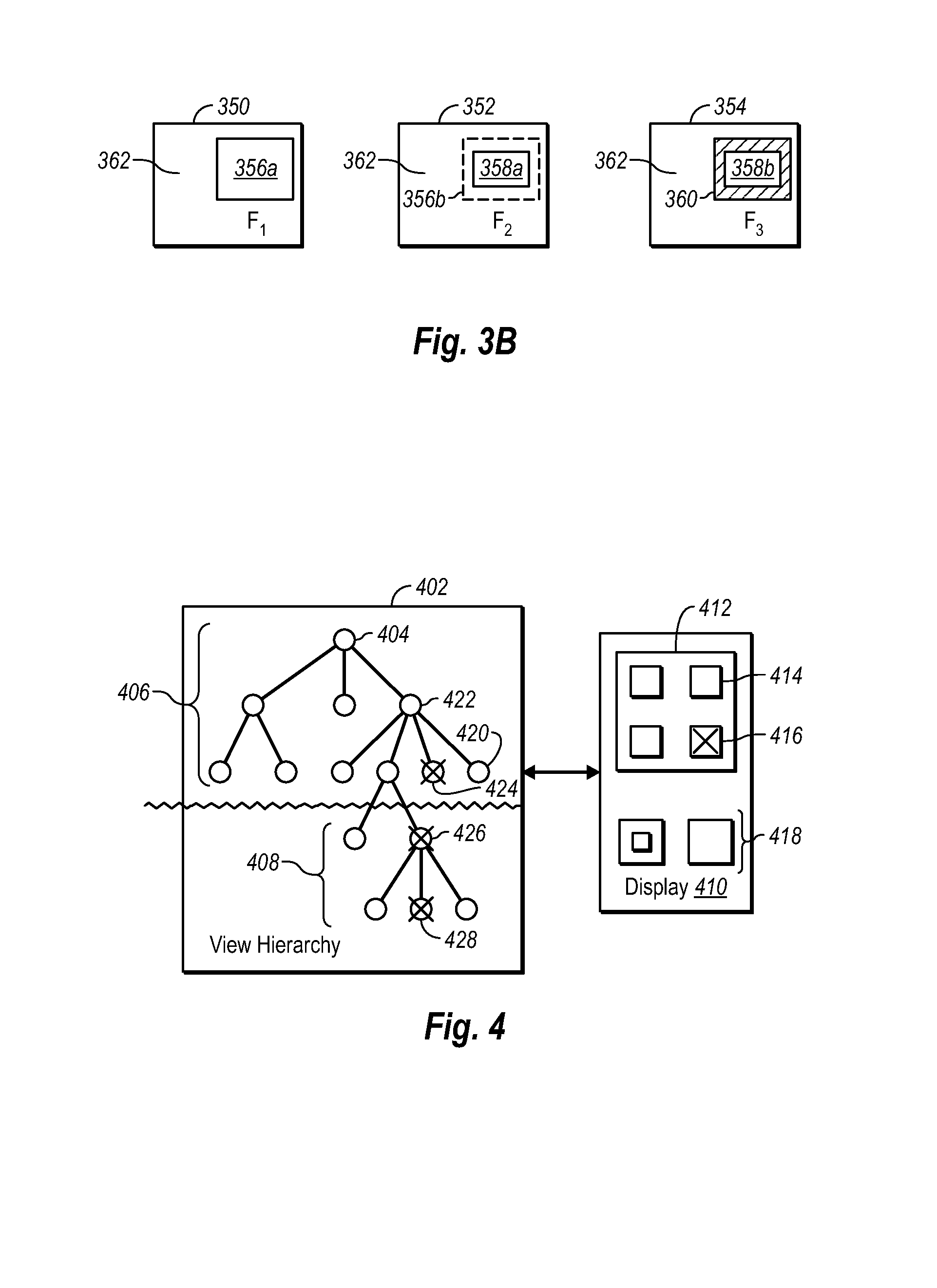Rendering changed portions of composited images
a composited image and portion technology, applied in the field of rendering graphics, can solve problems such as optimizing the result of commands, and achieve the effects of reducing the work performed by a graphic engine, enhancing the graphical capabilities of a device, and adding power
- Summary
- Abstract
- Description
- Claims
- Application Information
AI Technical Summary
Benefits of technology
Problems solved by technology
Method used
Image
Examples
Embodiment Construction
[0022]Embodiments of the invention relate to systems and methods for rendering composited images on the display of a device. Embodiments of the invention can improve the graphical capability of a device without additional hardware or the associated cost of the hardware. When rendering images for presentation on a display, a list of instructions is first analyzed to determine whether all of the instructions are necessary. Instructions that are for naught can be removed without impacting the end result.
[0023]Also, the ability of embodiments of the invention to collect damage to a frame as a next frame is being prepared can be improved by limiting damage collection to a visible portion of a display. Also, an image buffering system is managed in such a way that the amount of data in a frame that needs to be processed is minimized. In one embodiment, a graphic engine is required to redraw or paint only the portion of a frame that is marked as damaged (e.g., the portion of the frame that ...
PUM
 Login to View More
Login to View More Abstract
Description
Claims
Application Information
 Login to View More
Login to View More - R&D
- Intellectual Property
- Life Sciences
- Materials
- Tech Scout
- Unparalleled Data Quality
- Higher Quality Content
- 60% Fewer Hallucinations
Browse by: Latest US Patents, China's latest patents, Technical Efficacy Thesaurus, Application Domain, Technology Topic, Popular Technical Reports.
© 2025 PatSnap. All rights reserved.Legal|Privacy policy|Modern Slavery Act Transparency Statement|Sitemap|About US| Contact US: help@patsnap.com



